20 years after Woodsquat, the protest that began at an old Vancouver department store continues to resonate
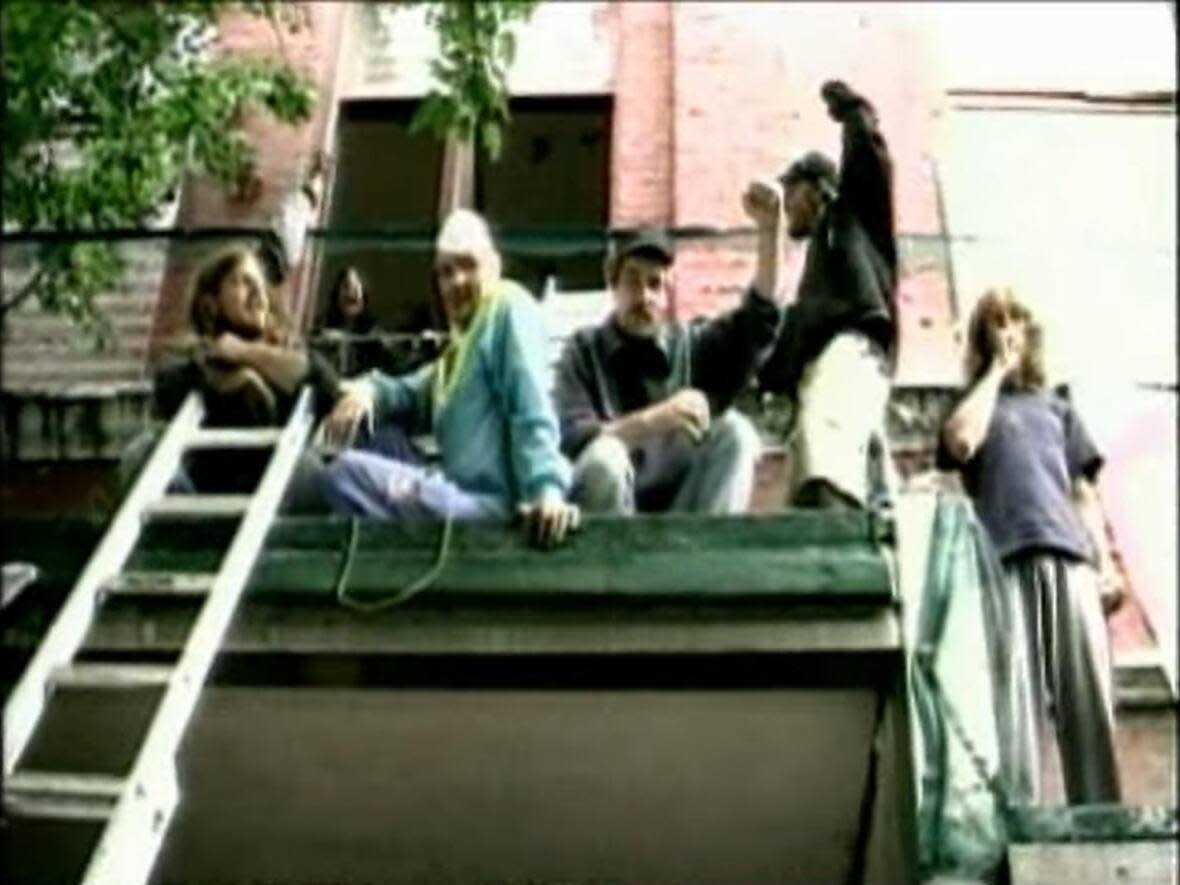
Twenty years ago in Vancouver, the newly elected B.C. Liberal government was facing widespread protests over cuts to social services, and tensions were high in the Downtown Eastside (DTES).
There was talk of an imminent Olympic bid, and an upcoming municipal election that was dominated by discussions over a lack of social housing.
Activists in the DTES then swung the spotlight on themselves, occupying a disused department store — that held historical significance for residents of Canada's poorest neighbourhood — to demand "homes, not jails."
The Woodward's squat or "Woodsquat" began on Sept. 14, 2002, a protest that went on to form a small tent city that lasted three months, and the eventual redevelopment of the site into a mix of social housing and condos.
The Woodward's department store occupied the entire block between Cambie and Abbott streets on West Hastings from 1903 to 1993, before it was shut down.
"Woodward's department store had been a symbol of the social life of the Downtown Eastside," said Ian Drury, a long-time housing justice activist who is now a history instructor at Fraser International College.
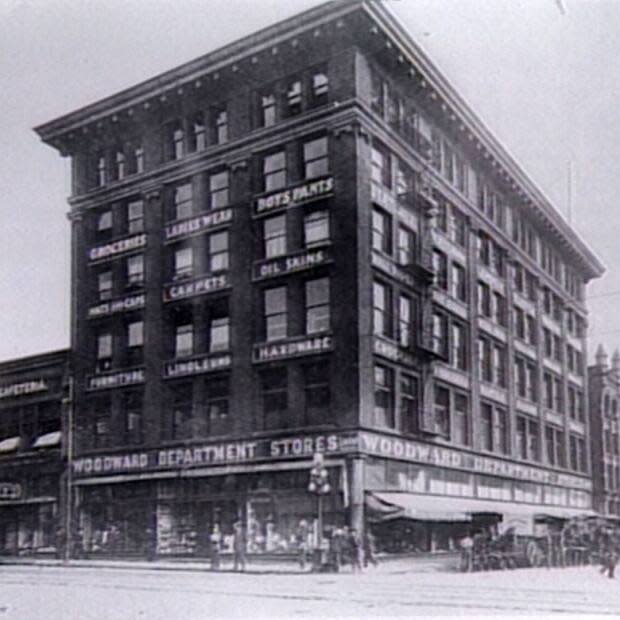
"It was more like a community hub and gathering place, that was also a department store. Its vacancy symbolized the flight of capital out of the Downtown Eastside. And also the abandonment of the neighbourhood by the government."
A B.C. Supreme Court injunction was issued after the squat began, but the activists were unyielding.
Six days into the occupation, Drury said he came to join the action, first envisioned as a "short-term" protest against then-mayor Gordon Campbell and the B.C. Liberal government. But it turned out to be something else entirely.
Fifty-four squatters at Woodward's were arrested at gunpoint by police officers in riot gear. It quickly became one of the most prominent acts of civil disobedience in Vancouver.
Series of police raids
Sid Chow Tan, a retired community media producer and activist, was one of the few documentarians who got access to the inner workings of the protest. He was one of the people arrested by the VPD.
A video he took shows activists — including a younger Drury — talk about their demands for the site, days before riot police marched through a nearby tunnel into the building.
WATCH | Sid Chow Tan's video from inside Woodsquat:
"After that arrest, where we were all arrested for violating a court injunction, none of those charges were upheld," Drury said.
"We marched back to the building and held a rally outside, a kind of ad hoc demonstration."
Mere minutes into the new protest, Drury said the police came back, using city buses to block off the street.
"The second time, the police were brutal. They dislocated my shoulder," he said.
"They were acting autonomously, separately from the orders of the mayor, just really trying to use violence in order to get things back to a controllable place."
When the activists returned for a third time, a tent city began forming outside the building as other residents showed up in support.
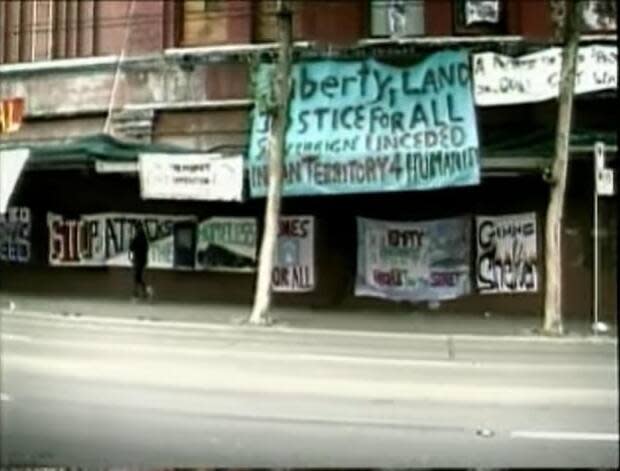
The tent city would last well into December — after the municipal election, won by a party that promised to redevelop Woodward's into social housing.
Extended redevelopment
The Coalition of Progressive Electors (COPE) eventually bought the Woodward's building in 2003.
Eighteen months later, they chose Westbank Projects to redevelop it, in a project spearheaded by real estate marketer Bob Rennie.
The tent city that had formed was eventually broken up by the city as residents accepted social housing in various single-room occupancy (SRO) hotels.
WATCH | Woodward's closes
But their demands for 100 per cent social housing at the Woodward's site got watered down over a protracted redevelopment period.
None of the 54 people arrested, or the tent city residents that occupied the sidewalks for months afterwards, were involved in consultations. The building was demolished in 2006, and reopened in 2010 as a mixed-use development.
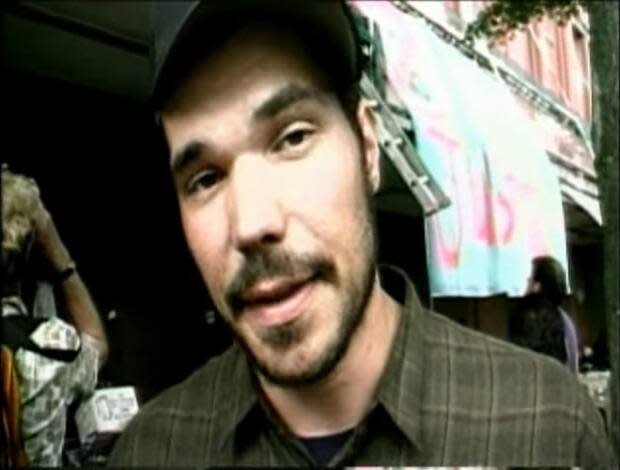
Today, the block contains around 20 per cent social housing, with the rest of the site taken up by market-rate condos, the SFU Gallery, restaurants and drug stores.
"I almost dislike saying this, but the lesson I learned [from Woodsquat] — and it's probably not fair to the good ones — is don't trust politicians," Tan said.
"Money talks."
Lessons for 2022
Drury said he had three major takeaways from Woodsquat: the protest's unifying nature for the city's working class, the introduction of widespread non-profit-led social services in the DTES, and the beginning of the neighbourhood's gentrification.
For Sean Orr, the closure of Woodward's in 1993 held extra significance, as it was the year the federal government stopped building social housing and downloaded the responsibility to provinces and municipalities.
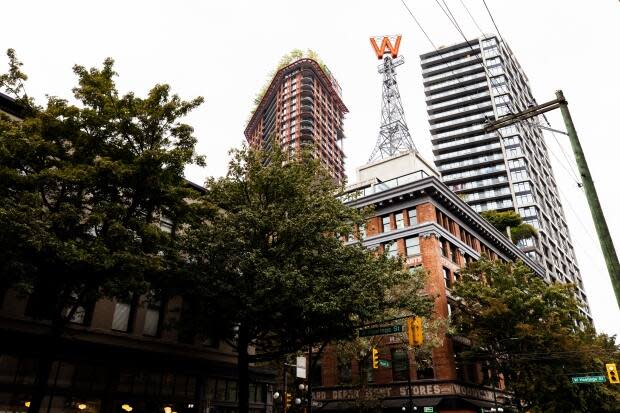
Orr is an activist and writer who lived in a drug and alcohol recovery centre next door to Woodward's at the time of the occupation. He's currently a city council candidate for VOTE Socialist.
He said Woodsquat is part of a legacy of protests for housing justice in Vancouver — from Expo 86 and the Olympic Village protests in 2010 to the 2022 action on Hastings Street.
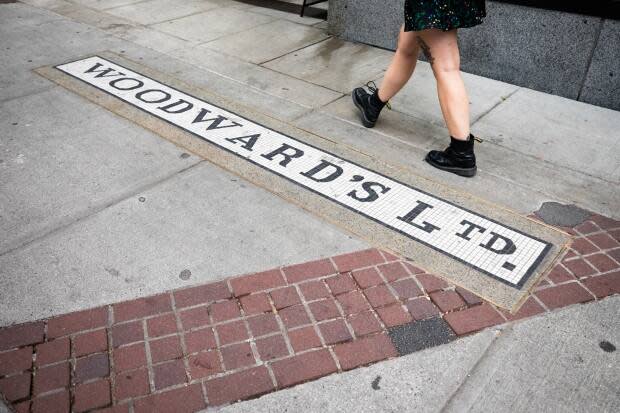
"That's the beauty of Woodward's as a kind of flashpoint — it brought up all these kinds of issues that hadn't been discussed," he said.
"It was a result of decades of austerity."


